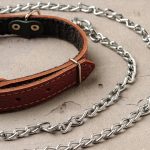On July 4, 1776, the Continental Congress adopted the Declaration of Independence, founding a new nation of independent, united states. Our constitutional republic has been a model of democratic freedom for over 240 years. We have much to celebrate this Independence Day: when you do, please keep yourself free from injury.
July 4th Traditions
Most Americans celebrate Independence Day with cookouts, picnics, pool parties, or a day at the beach, and fireworks after dark. Many of these celebrations will include alcohol.
It’s not surprising, then, that July 4th is one of the busiest days in hospital emergency rooms, and one of the deadliest in terms of traffic accidents.
[bctt tweet=”While three former U.S. presidents — John Adams, Thomas Jefferson, and James Monroe — all died on July fourth, it’s not something we want to make an American tradition.” username=”torklaw”]
Fireworks
Even before the Declaration of Independence was signed, John Adams wrote his wife Abigail that the occasion should be commemorated “with Pomp and Parade, with Shews, Games, Sports, Guns, Bells, Bonfires and Illuminations.” The first Independence Day celebrants on July 4, 1777 fired 13 rockets into the Philadelphia sky.
Fireworks spectacles have become grander and more expensive since. WalletHub reports that the U.S. imports $307.8 million worth of fireworks each year; 95% come from China.

Sparklers burn at temperatures up to 1800° F.
The U.S. Consumer Product Safety Commission’s (CPSC) 2018 annual fireworks report estimated that emergency rooms treated 12,900 fireworks injuries in 2017. More than half were burns, most commonly to the hands and fingers; head, face, and ears; and eyes.
36 percent of fireworks injuries were to children younger than 15.
Many people feel that sparklers and firecrackers are safe for children. As innocuous as sparklers seem, those red, white and blue colors are created from metals burning at temperatures over 1,800 degrees Farenheit. An estimated 1,200 sparkler-related injuries were treated in hospitals in 2017, and an estimated 800 injuries were associated with firecrackers.
To enjoy fireworks safely, TorkLaw recommends attending a professional fireworks display. (Although, as we will show you in our next post, that’s not always a sure bet!) If you are setting off fireworks at home, we offer the following advice to avoid fireworks injuries:
- Only use consumer-grade fireworks allowed by law in your area; leave professional fireworks to pyrotechnicians.
- Never allow children to handle fireworks.
- If using consumer fireworks, keep a bucket of water or a hose handy.
- If a firework is a dud, don’t relight it! Instead, pour water over it to prevent accidental explosions later.
- Wear shoes and safety glasses when lighting fireworks. Safety gloves are also advisable.
- Don’t set off fireworks if you’re impaired by alcohol or drugs.
Drinking
July 4th is the United States’ top beer-drinking holiday, with over a billion dollars spent on beer each holiday, and over $500 million on wine.

July 4 is America’s top beer-drinking holiday
And there’s nothing wrong with that, by itself. After all, the melody of our National Anthem was originally an English drinking song in praise of wine.
The problem comes when those who have consumed alcohol or drugs attempt to operate motor vehicles. According to the Insurance Institute for Highway Safety, the Fourth of July is the deadliest day of the year for traffic accidents. Drunk driving accounts 47 percent of those. Because many people will celebrate the holiday on the water, there is also a spike in drunken boating accidents as well.
Don’t operate any motor vehicle while impaired. Read last week’s blog post on impaired driving for more information.
Feasting
The U.S. consumes mass quantities of beef, chicken, hot dogs, sausages, ribs, and barbeque sauce each Independence Day. Food poisoning is another frequent cause of Independence Day emergency room visits.
- Avoid foodborne illnesses with the following food safety tips:
- Keep hot foods hot, cold foods cold, and everything covered as much as possible to keep insects away.
- Don’t leave food out for more than an hour or two – refrigerate leftovers promptly.
- Keep raw meat away from fruits and vegetables to avoid cross contamination, and be sure your meat is cooked completely.
- Wash hands frequently while preparing food to prevent the spread of bacteria and viruses.

62% of people in the U.S. will attend a 4th of July picnic
Fun in the Sun
28% of Americans will go to the beach on Independence Day. Others will enjoy cookouts at their pools, or picnics in the park. The vast majority of people in the U.S. will spend the fourth of July in the sun.
Being in the sun is great – it improves mood, stimulates the body’s production of Vitamin D, and can be good for the skin and eyes – in moderation. Enjoy your day outdoors with the following sun safety guidelines:
- Drink plenty of water to prevent dehydration.
- And alcohol doesn’t count – in fact, excess alcohol consumption causes dehydration.
- Try drinking two glasses of water to every alcoholic drink. It will prevent dehydration, and lower your blood alcohol content (BAC).
- Heat stroke occurs from extended exposure to hot temperatures, especially combined with physical exertion.
- Heat stroke is a serious. If your body temperature rises to 104 degrees Fahrenheit, or higher, it requires immediate emergency treatment to prevent serious damage to your brain, heart, kidneys, and muscles.
- Other symptoms include nausea and vomiting, flushed skin, and changes in mental state, breathing, heart rate and perspiration.
- Avoid spending too much time in direct sunlight, especially when exerting yourself by working or playing sports.
- Protect your skin by wearing sunscreen that:
- Has broad-spectrum protection from UVA and UVB rays (meaning it protects against both long wave and short wave ultraviolet [UV] rays).
- Has an SPF 30 or higher.
- Is water resistant.
- Reapply frequently after swimming or perspiring.
- Don’t rely on sunscreen alone. Try not to stay in direct sunlight for too long – go inside or cover up if your skin begins to feel hot.
- Prevent drowning or diving injuries:
- Never leave children unattended in water for any length of time. Designate a sober adult to be a water monitor when children are swimming.
- Take care when diving – water can appear deceptively deep when it is dangerously shallow. Never dive head-first into water unless you are personally certain it is more than 8-9 feet deep.
- Don’t swim or dive while intoxicated.

Have adults alternate as pool monitors so everyone can enjoy their July 4th pool party!
TorkLaw wishes you a happy, fun, and safe Independence Day!
Enjoy the holiday, and remember, if you are the victim of any of the above injuries due to someone else’s actions, we are here to help you. Call us at: 888.845.9696.



